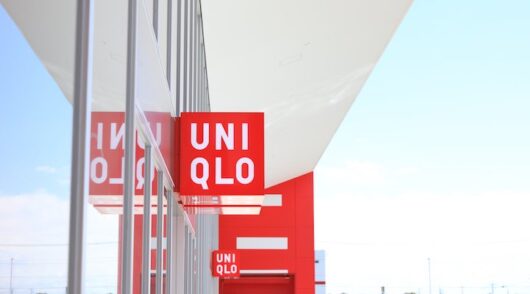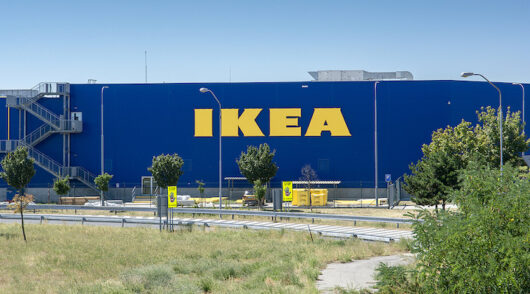In just five years, Singapore-based Leza Parker (pictured)’s life has transformed from stay-at-home mum to being the founder/CEO of a US$50 million company selling 15,000 beauty products online.
Her Spendless Cosmetics has evolved into a world-first social e-commerce business platform, empowering women all over Asia to earn money working from home with no technology or retail skills.
At first the venture was a straightforward e-commerce site, selling beauty products and cosmetics. Then she expanded it by developing a world-first concept: empowering women at home or social-media enthusiasts seeking a secondary income to open their own sites drawing on her brand’s stock and distribution system and selling to family and friends in their social circles. She called it the SC Beauty Network.
“Right now you are a student, a mother, an individual struggling to pay bills… and you think: I need to make money right now. You can go into our website and sign up as an SC seller. Our system automatically creates your website in 30 seconds, personalised for you, with your picture, your name, integrating the social media of your choice, using your own personal domain. And you control this website with 15,000 beauty products.
Share the link
“You can share that domain with your friends and families, so when someone tells you they are looking for a hair straightener you can share them the link of a hair straightener on your e-commerce site that we maintain for you, and then that person will start shopping on your website.”
An SC seller can wake up each day to 10 orders on their site. They can immediately go to their back office online to see the customer details, the transactions and the commission they are about to earn. Spendless Cosmetics fulfills the order, not the SC seller.
The whole concept is based on relationship-building by the sellers. SC Beauty does not advertise or send email newsletters.
“So if you want to buy any makeup product, you have to select a reseller,” says Parker. “And you have a reseller you like, because it’s your sister you’re trying to support, or your neighbour, so you’re going to keep on buying because you know that person.
“So now the suppliers can stop pumping so much money into macro influencers. They start to believe in micro influencers – online distributors that can build closer engagement with smaller circles because the conversion of sale is much higher than that of a paid advertisement.”
Free webinars
Would-be sellers can take free webinars run by sister company SC Academy to upskill in social-media skills and boost their customer traffic. Similarly, SC Academy trains small brands in marketing and even has a creative studio to help with digital branding.
“We are trying to develop an ecosystem, which is still the first in the world, and we are pioneering technology in Southeast Asia. We’re big particularly in the Philippines, Indonesia, Malaysia and Singapore, but the thing we’re so proud of is that people we don’t know in countries we’ve never been to can now earn money from us.”
Brands that Spendless Cosmetics works with include Bobby Brown, Christian Dior, Issey Miyake, L’Oreal and Revlon.
Parker says the real challenge for everyone in the retail industry moving into the future is that finding, acquiring and retaining customers does not get easier.
“The fact that technology has already been around in our lives for while means it’s so easy to be compared with online competitors you don’t even know. Your customer knows who your competitor is, trust me. They see you and they go to Google, which is going to give them five other competitors, direct-pricing competition, yet you actually have better customer service. You work harder than your competitors, but who gets the sales? Someone else, because technology allowed that comparison to happen.
“So lastly, the real challenge for an entrepreneur is to constantly and consistently instill personal touch despite transacting more than 1000 orders a day. That is going to be the real challenge of businesses.”
Value beyond monetary
Parker advocates creating a business that offers value beyond monetary returns and offers people a long-lasting effect more than short-term gratification.
And, says Parker, constantly refine your business and its offer, because the world is ever changing…
“When I started my business from home five years ago, I did not think I’d be a CEO. I did not think I would own a $50 million company. We weren’t thinking we were going to penetrate globally, but we did – not because we’re experts, but because every day we paid attention to small things then we tweaked our strategies to match exactly what was demanded. And then we continued to do the same thing again and again and again, and the business made only good decisions from them on.”
Meanwhile, Parker cautions against an over-reliance on data, because people tend to change. “Data tells you what the customer thought in the past. Although it helps you with future campaigns, it’s less significance than current data.
Parker wants retailers to think more laterally about the sort of information they seek from their customers and what they do with it.
“This is why engaging with your community is best. What is the point of knowing what a person bought the last 10 times when I can just ask her what she wants to buy now? She is going to tell me, for instance, that tomorrow she intends to buy a pink top. So as a retailer, what do I do? I am going to show her a pink top. But the last five times she wasn’t buying a pink top – she was buying blue, she was buying red, she was buying purple. If I follow all the past data to tell me what she’s going to buy tomorrow, guess what? It doesn’t help.”
Works both ways
Parker believes there are two things that will drive customers to retailers. For short-term customers, interest and interest alone. For long-term customers, interest that builds into trust. “That is the future of shopping or customer behaviour.”
Trust, says Parker, runs both ways and is grounded in mutual understanding. “So when you want to build a community where you interact with people, where they know your brand, they should not feel forced into giving you their information then regret it later, because they’re going to hate you. They have to feel that they want to do it.
“If go to a bar you’re not asked for your age, name or email address. So why are you asking your customers these questions?
“That’s why people don’t want to tell – you could be a stalker. So people start to reserve more data, and in the end you get nothing out of them, absolutely nothing. They don’t even want to tell you their favourite colour. They don’t want you to waste their energy. So when you want to ask, ask in an engaging way, because not everybody is into perks, rewards or remunerations.”
This story originally appeared in the Spring edition of Inside Retail Hong Kong magazine edition. To read the latest, summer edition in print or digital format, subscribe online.






